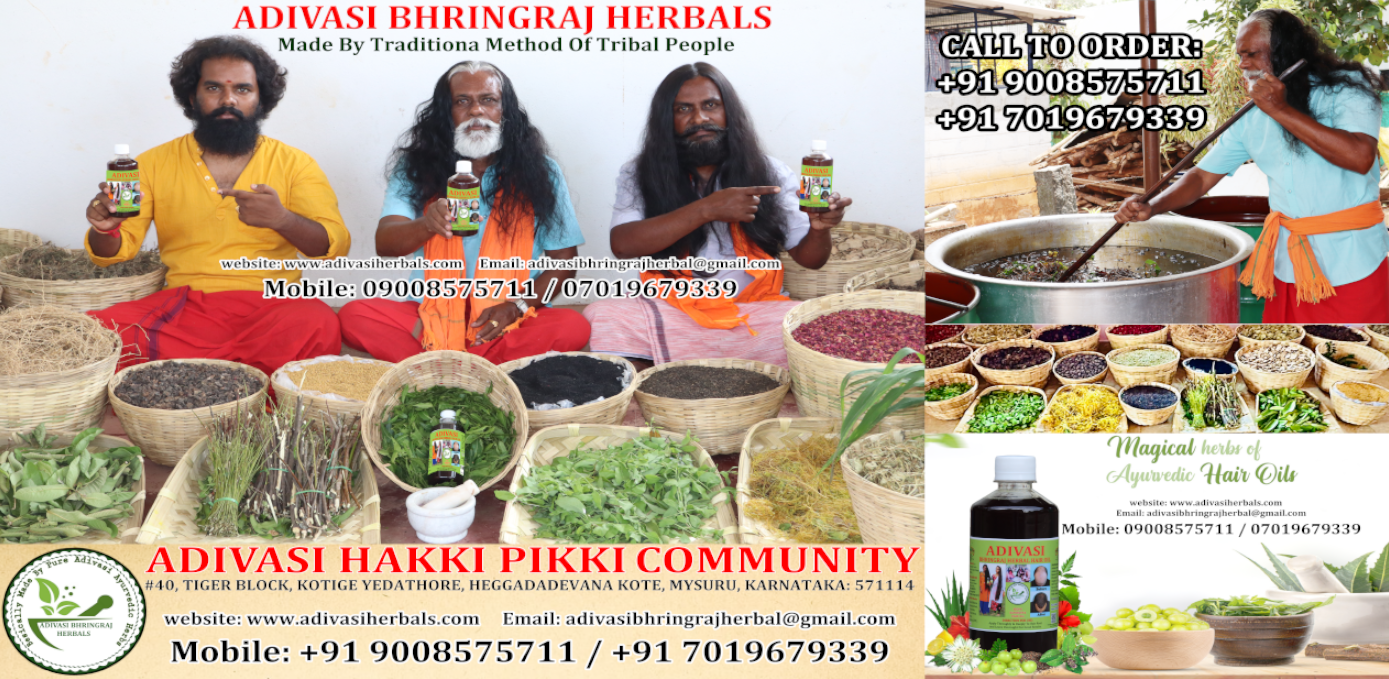
My Store
Adivasi Bhringraj Herbal Hair Oil (with adivasi traditional ayurvedic technique)
Share

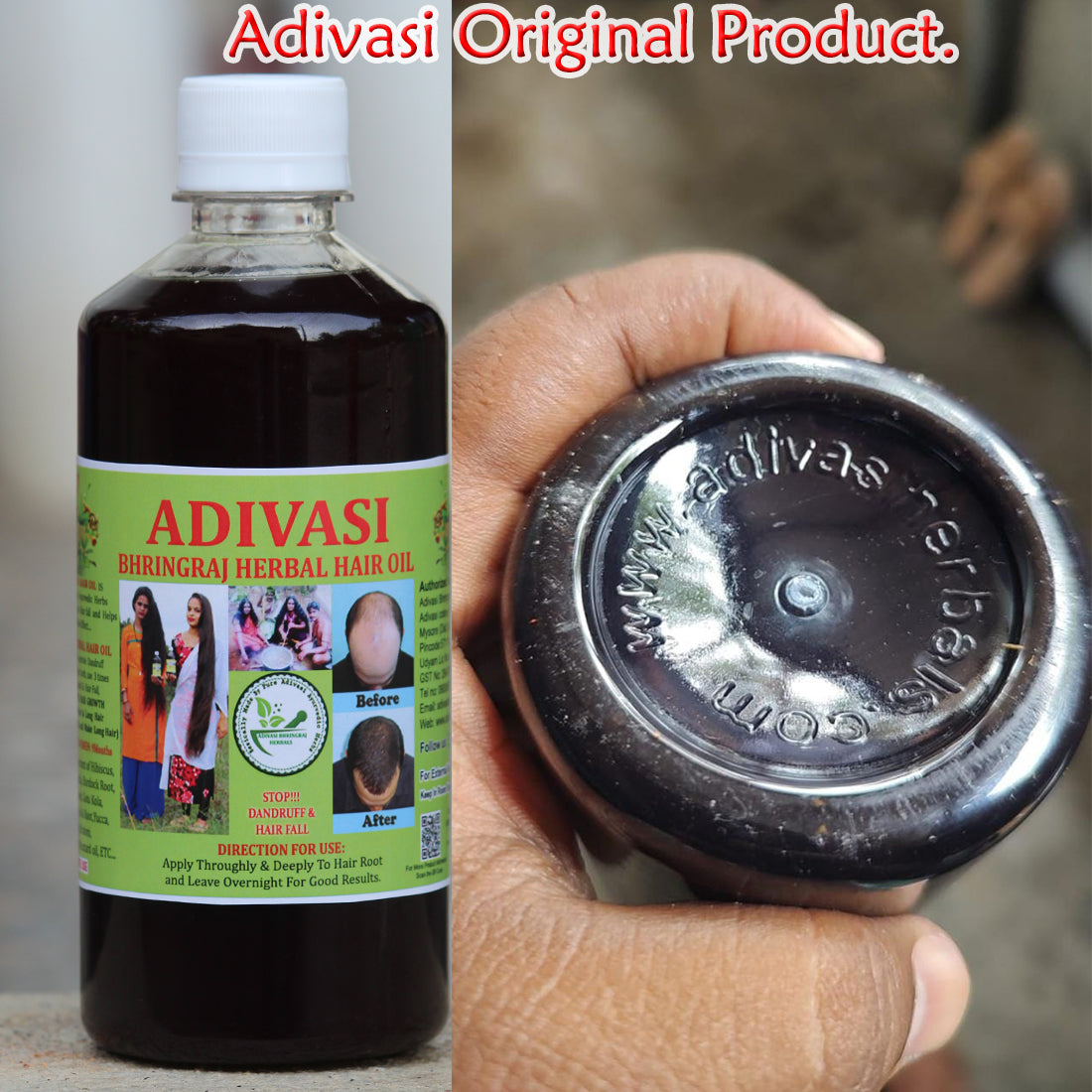
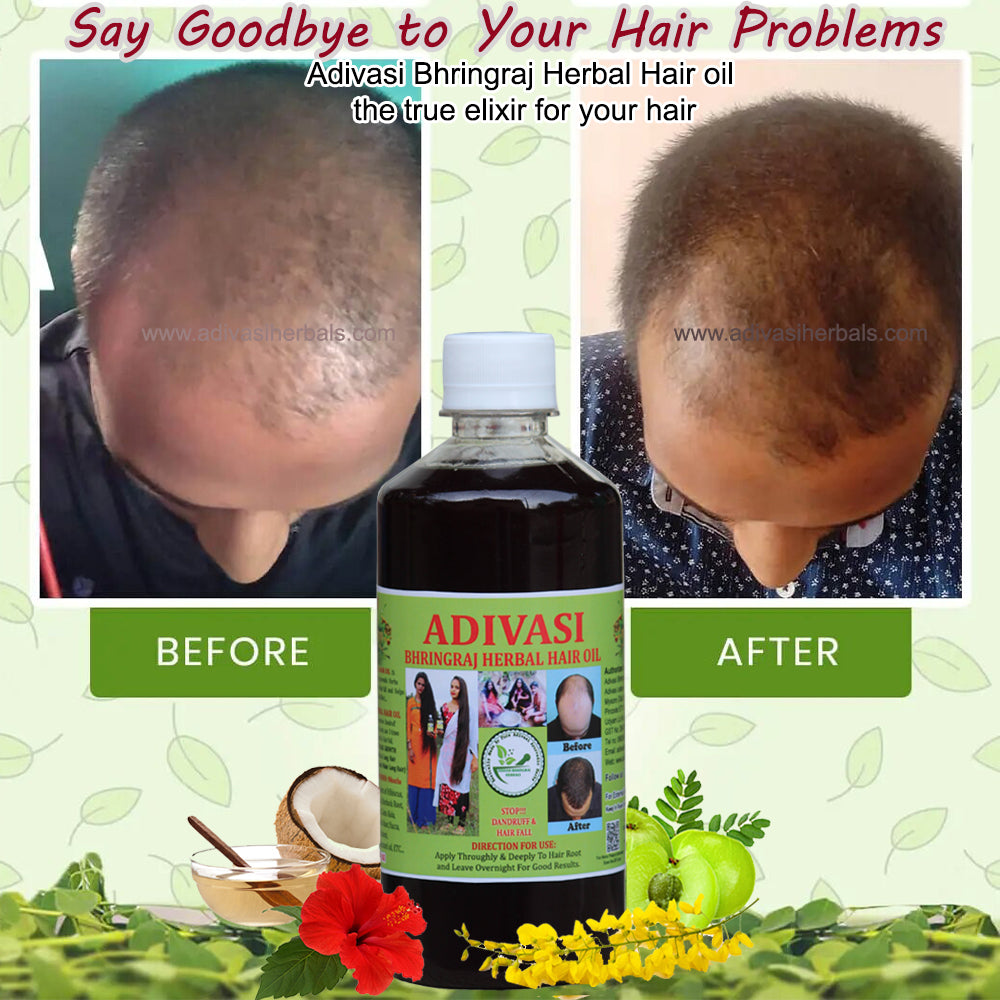

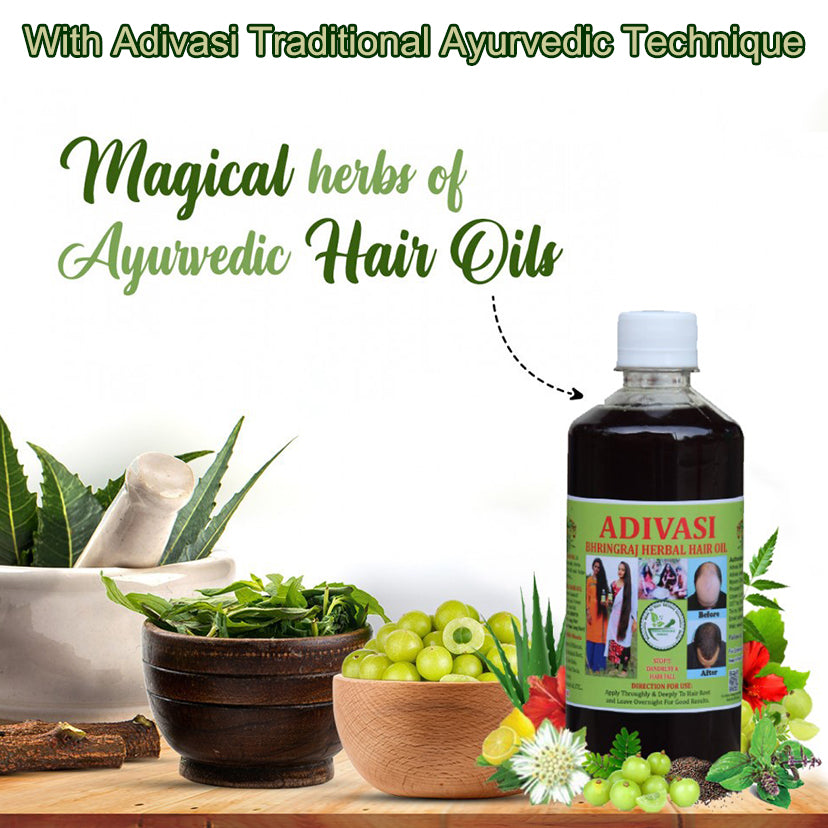
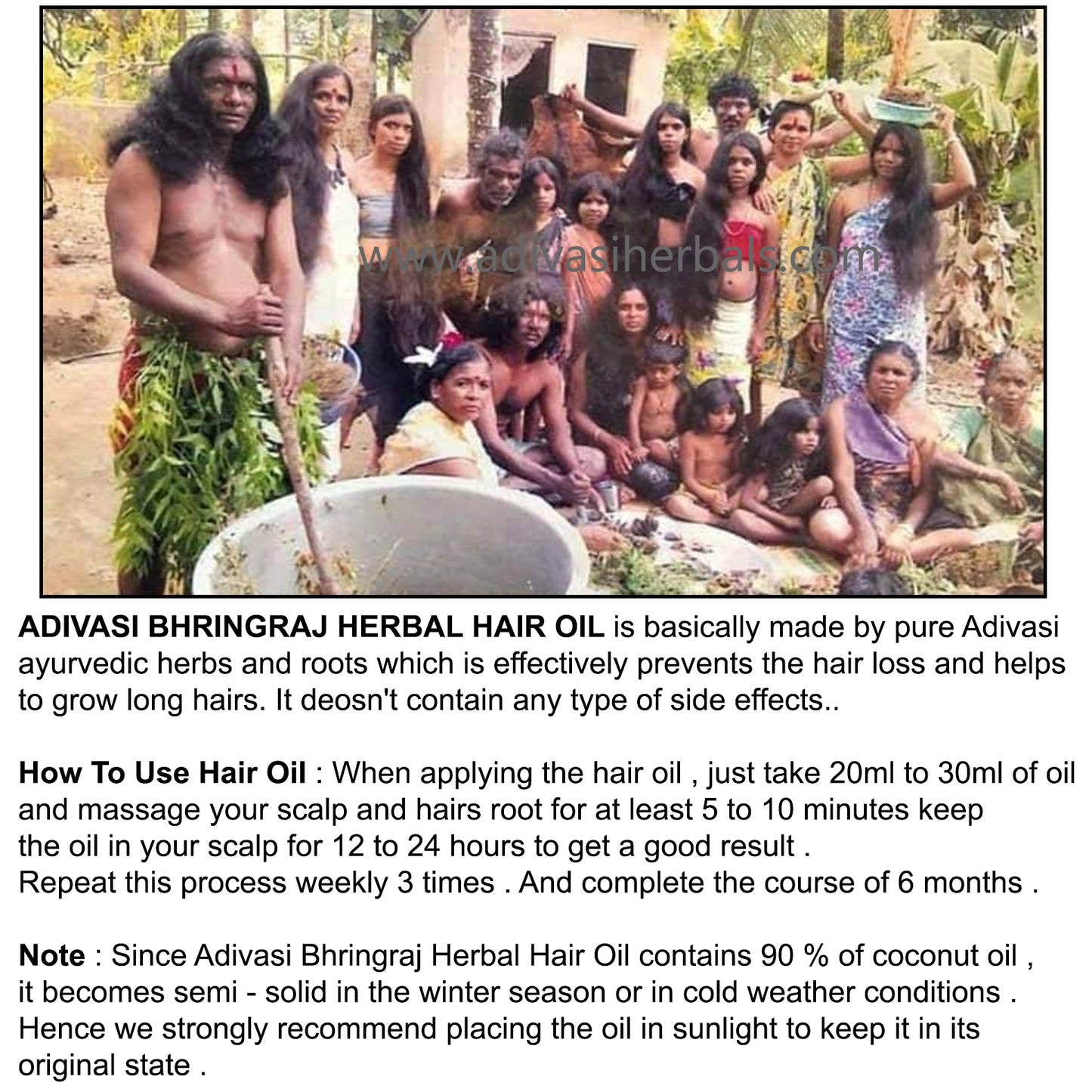
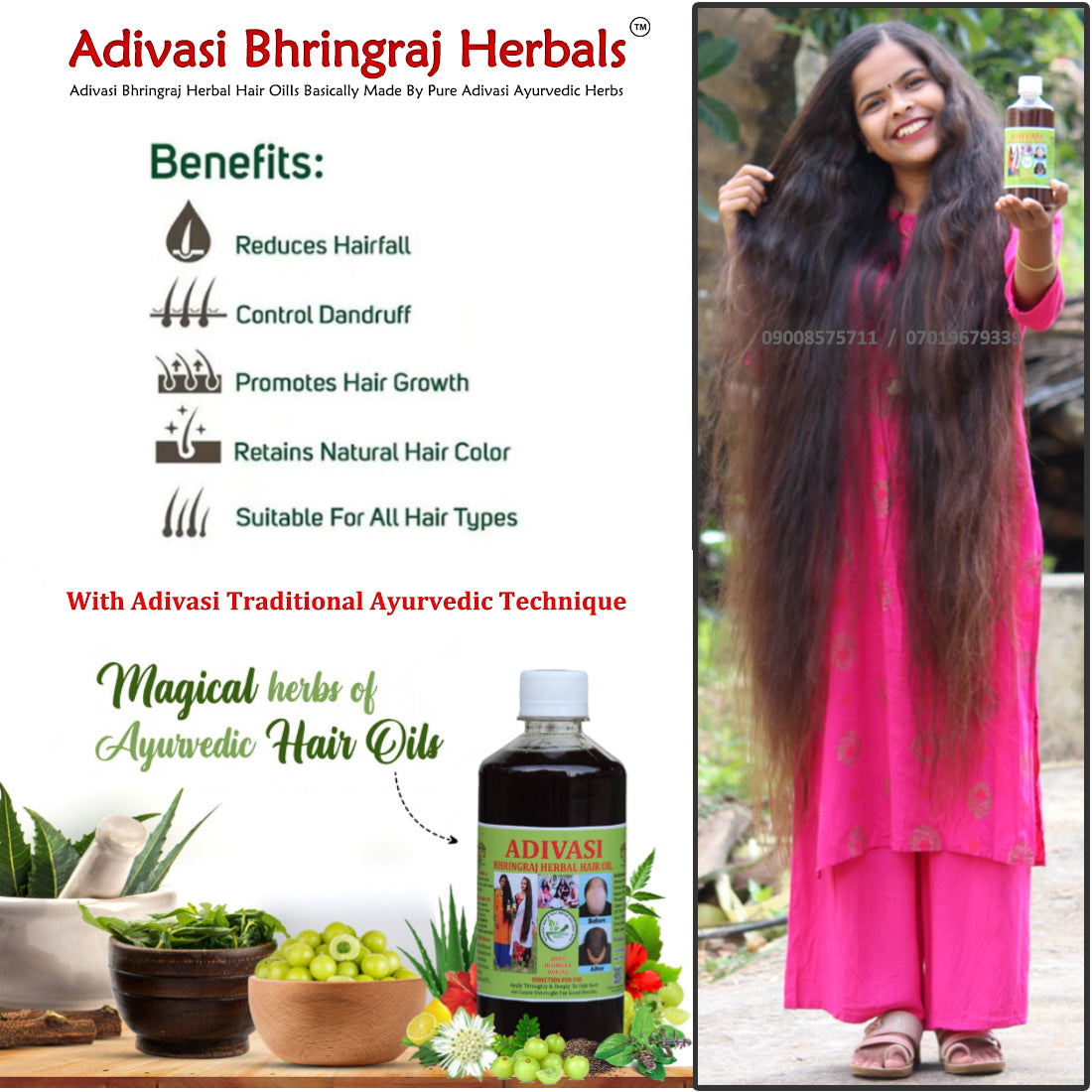
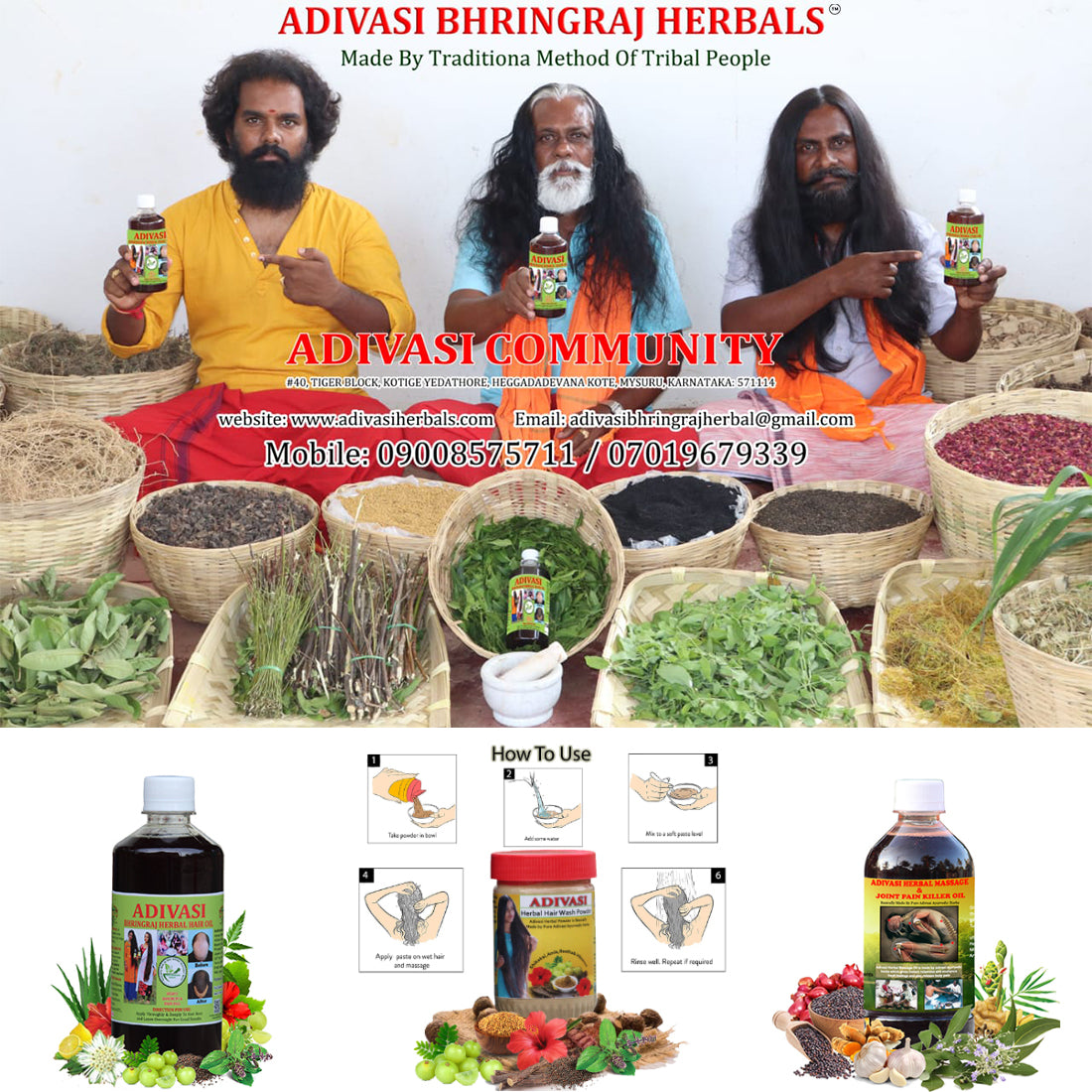
Featured products
-
Adivasi Bhringraj Herbal Hair Oil & Adivasi Herbal Hair Wash Powder [500ml+250g](with adivasi traditional ayurvedic technique)
Regular price Rs. 2,100.00Regular priceUnit price / perRs. 2,800.00Sale price Rs. 2,100.00Sale -
Adivasi Bhringraj Herbal Hair Oil & Adivasi Keshavaya Ayurvedic Shampoo (with adivasi traditional ayurvedic technique)
Regular price Rs. 1,699.00Regular priceUnit price / perRs. 2,500.00Sale price Rs. 1,699.00Sale -
Adivasi Bhringraj Herbal Hair Oil (with adivasi traditional ayurvedic technique)
Regular price From Rs. 1,299.00Regular priceUnit price / perRs. 1,899.00Sale price From Rs. 1,299.00Sale -
Adivasi Bhringraj Herbal Hair Oil [1000ml](with adivasi traditional ayurvedic technique)
Regular price Rs. 2,499.00Regular priceUnit price / perRs. 3,200.00Sale price Rs. 2,499.00Sale

BRAHMI
Brahmi, scientifically known as Bacopa monnieri, is a perennial herb native to wetlands in India, Southeast Asia, and other tropical regions. It has a long history of use in traditional Ayurvedic medicine, where it is revered for its potential cognitive and neurological benefits brahmi is often used as a brain tonic, believed to enhance cognitive function, improve memory, and reduce stress and anxiety. It contains active compounds called bacosides, which are believed to support neurotransmitter function and protect brain cells from damage caused by oxidative stress.
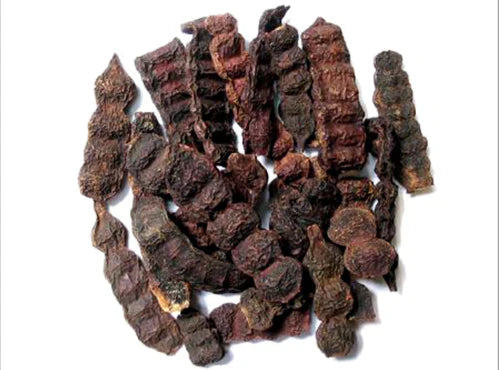
SHIKAKAI
Shikakai is a natural herbal remedy derived from the Acacia concinna tree, native to Asia, particularly India. It has been used for centuries in traditional Ayurvedic medicine and hair care practices. Shikakai, which means "fruit for hair" in Hindi, is primarily known for its gentle cleansing and nourishing properties.
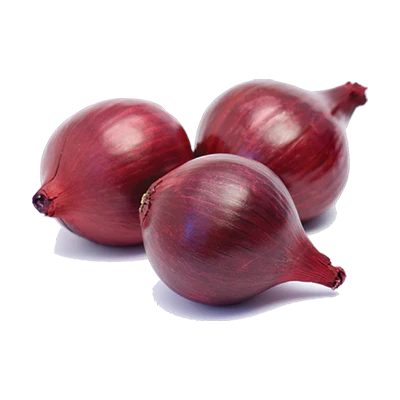
ONION
Onion is a widely used vegetable in cooking, known for its distinct flavor and aroma. It belongs to the genus Allium and is closely related to garlic, shallots, and leeks. Onions come in various colors, including white, yellow, and red, and can be eaten raw or cooked in a multitude of dishes rich in vitamins, minerals, and antioxidants, onions offer several potential health benefits. They contain compounds like quercetin and sulfur compounds, which are believed to have anti-inflammatory and immune-boosting properties. Onions are also known for their prebiotic fiber content, which promotes a healthy gut microbiome and digestive system.
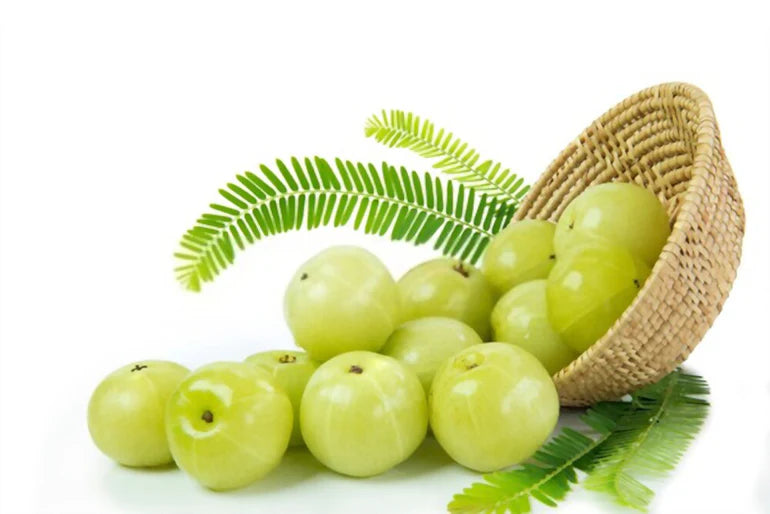
AMLA
Amla, also known as Indian gooseberry, is a fruit that grows on the Phyllanthus emblica tree native to India and surrounding regions. It's highly prized in Ayurvedic medicine for its numerous health benefits. Amla is rich in vitamin C, antioxidants, and other phytonutrients, making it a powerful immune booster and free radical scavenger. It's traditionally consumed raw, as a juice, or in various culinary dishes like chutneys and pickles. Amla is also used in hair care products for its ability to promote hair growth and strengthen hair follicles. Additionally, it's believed to support digestion, improve eyesight, and enhance overall vitality. Amla's versatility and health-promoting properties have made it a staple in traditional Indian medicine and cuisine.
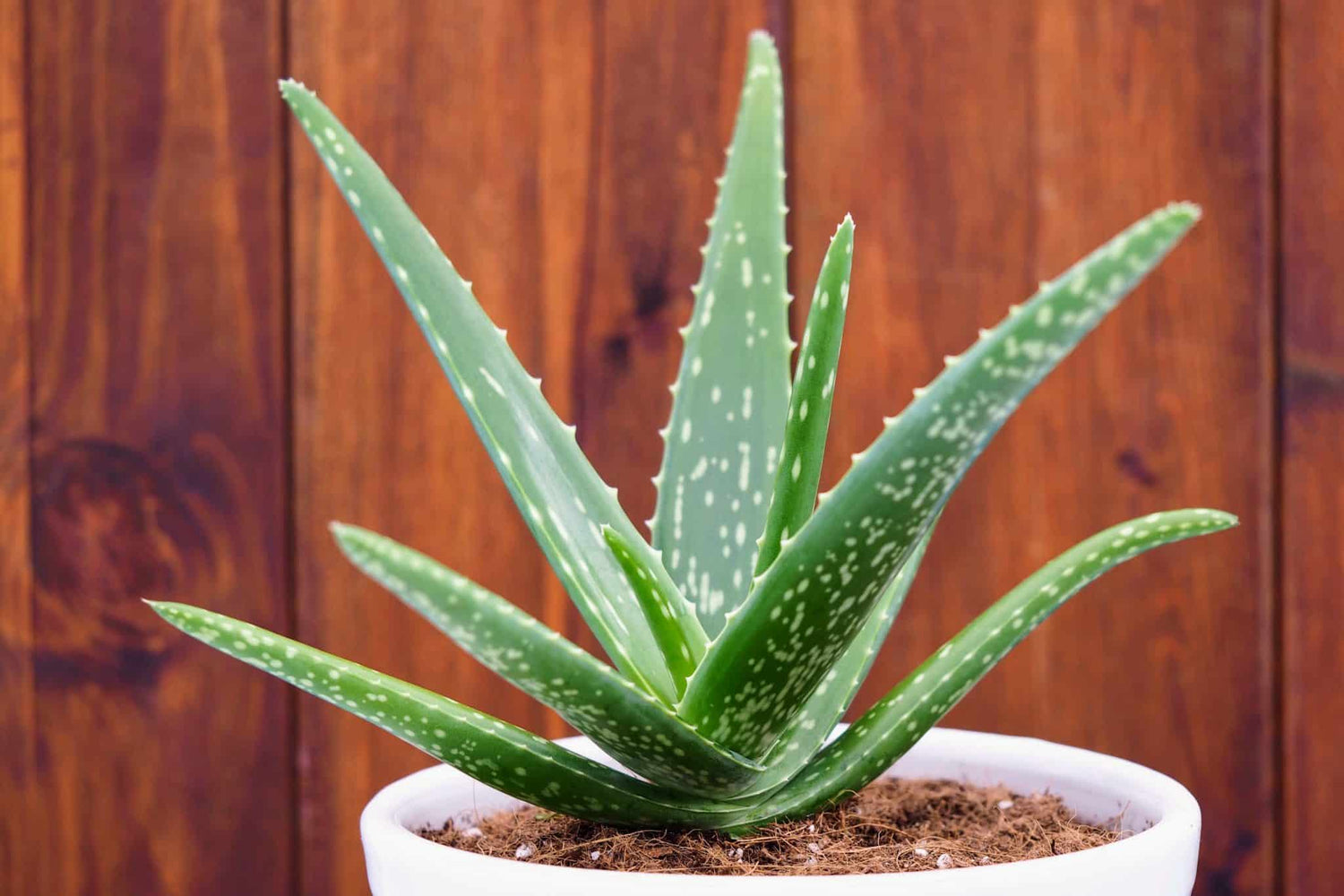
ALOE VERA
Aloe vera is a succulent plant species that has been used for centuries for its medicinal properties. It's known for its thick, fleshy leaves that contain a gel-like substance rich in nutrients and beneficial compounds. Aloe vera gel is commonly used topically to soothe sunburn, moisturize skin, and promote wound healing. It's also found in many skincare and cosmetic products due to its hydrating and anti-inflammatory properties. Additionally, aloe vera has been studied for its potential internal health benefits, such as aiding digestion and supporting the immune system, although more research is needed in these areas. Overall, aloe vera is a versatile plant with various uses and potential health benefits.
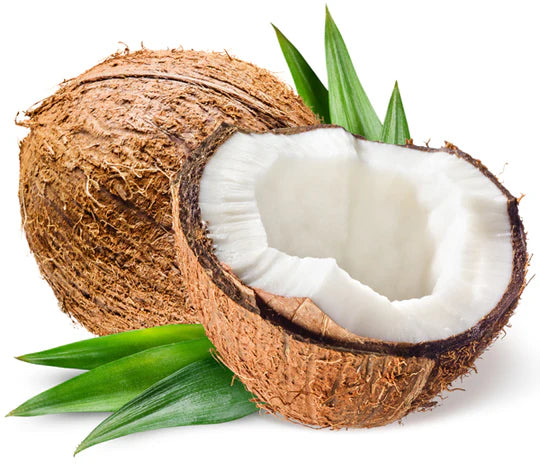
COCONUTS
The coconut palm (Cocos nucifera) is a tropical tree known for its versatile fruit, the coconut. Coconuts have a hard outer shell, fibrous husk, and inner flesh that can be eaten raw or used in various culinary applications. Coconut water, the clear liquid found inside young coconuts, is a popular beverage known for its hydrating properties and electrolyte content. The white flesh of mature coconuts can be grated, shredded, or pressed to extract coconut milk or oil, both of which are widely used in cooking and baking.

1. Context of Adivasi Herbal Hair Oil:
Adivasi communities, deeply rooted in nature, have long relied on herbal remedies for various ailments, including hair care. Traditional herbal hair oils are meticulously prepared using locally sourced herbs, plants, and oils, reflecting a profound connection to the land and its biodiversity.
2. Ingredients and Their Benefits:
a. Bhringraj (Eclipta Prostrata): Known as the "king of herbs for hair," Bhringraj promotes hair growth, prevents premature graying, and nourishes the scalp.
b. Amla (Emblica Officinalis): Rich in Vitamin C and antioxidants, Amla strengthens hair follicles, prevents hair loss, and adds luster to the hair.
c. Neem (Azadirachta Indica): With its antibacterial and antifungal properties, Neem effectively treats dandruff, scalp infections, and promotes a healthy scalp.
d. Coconut Oil (Cocos Nucifera): A staple in Adivasi herbal hair oil, coconut oil deeply moisturizes the scalp, prevents protein loss in hair, and adds shine.
e. Hibiscus (Hibiscus Rosa-Sinensis): Hibiscus flowers are renowned for their conditioning properties, promoting hair growth, and preventing split ends.

. Preparation Process:
The preparation of Adivasi herbal hair oil is a labor of love, often involving a meticulous process passed down through oral traditions. The herbs are carefully selected, dried, and ground into a fine powder. This powder is then infused in a base oil, such as coconut oil or sesame oil, through a slow heating process. The concoction is left to steep for days or even weeks, allowing the oil to absorb the essence of the herbs fully.
4. Cultural Significance:
Adivasi herbal hair oil is not merely a cosmetic product but a symbol of cultural identity and community heritage. The process of making and using the oil is deeply ingrained in cultural practices, often accompanied by rituals and ceremonies that honor the connection between humans and nature.
5. Benefits and Efficacy:
Regular use of Adivasi herbal hair oil offers a myriad of benefits, including:
6. Sustainability and Conservation:
Adivasi communities have a profound respect for nature and its resources. The sourcing of ingredients for herbal hair oil is done sustainably, ensuring the preservation of biodiversity and the ecological balance of the region. Furthermore, efforts are made to educate and empower community members to cultivate medicinal plants, thus promoting self-sufficiency and environmental stewardship.

 Skip to content
Skip to content


](http://www.aadivasiherbals.com/cdn/shop/files/Bhringraj250ml_HairPowder200g-Free.jpg?v=1717253394&width=533)





](http://www.aadivasiherbals.com/cdn/shop/files/500ML-BHRINGRAJJADEBHUTI2Bottel.jpg?v=1717252344&width=533)
